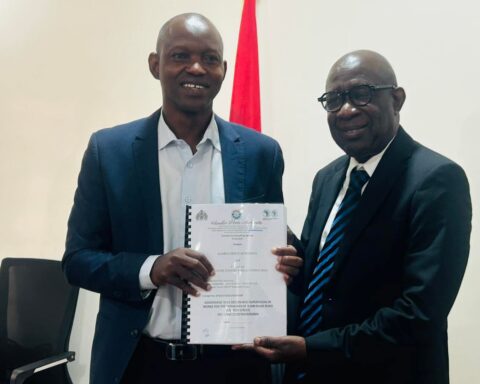By Michaella Faith Wright
Mr. Edrisa Sankareh, a seasoned teacher with over a decade of experience working with deaf and hard-of-hearing students, has highlighted the qualities needed to improve deaf education in The Gambia, stressing the importance of communication, empathy, and continuous learning.
Speaking on the gradual progress of deaf education in the country, Mr. Sankareh emphasized that teachers must go beyond traditional methods to meet the unique needs of their students.
“Excellent communication skills are vital, particularly proficiency in Gambian Sign Language (GSL). Teachers should be able to interact directly with students without relying on interpreters,” he explained.
He noted that patience and empathy are equally essential, as students often face challenges due to hearing loss. “A teacher must be able to understand, support, and encourage students to build confidence and engagement,” he added.
Mr. Sankareh also stressed the need for critical thinking in developing Individualized Educational Plans (IEPs) and adopting flexible strategies. Collaboration with parents, colleagues, the Ministry of Basic and Secondary Education, and donors, he said, is central to building a strong support system.
Other key traits, according to him, include adaptability, knowledge of deaf culture, and a commitment to continuous professional growth. He further encouraged home visits, describing them as “a valuable resource for providing personalized support in a comfortable environment.”
“With these characteristics in place, the future of deaf education in The Gambia looks promising,” Mr. Sankareh concluded.
By Michaella Faith Wright Mr. Edrisa Sankareh, a seasoned teacher with over a decade of experience working with deaf and hard-of-hearing students, has highlighted the qualities needed to improve deaf education in The Gambia, stressing the importance of communication, empathy, and continuous learning. Speaking on the gradual progress of deaf education in the country, Mr. The Fatu Network

